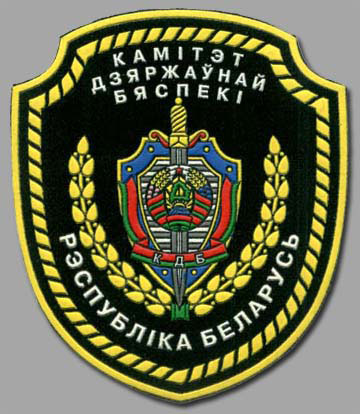Student harassed by KGB
On 7 April Maryna Yauseichyk, student of the Journalism Faculty of the Belarusian State University, received a phone call from an unknown person, presenting himself as a KGB officer Zmitser, who invited the girl for conversation to the KGB office at 6a Kazlou Street in Minsk. The conversation was to deal with the 3 July 2008 Minsk explosion. The student received another call from the same person, who inquired whether she was going to turn up. As a result, the girl was forced to agree to come.
‘At first, he did ask me about the explosion. However, then he changed the subject, and started asking me about various parties and youth movements, whether I participated in any events or rallies. I said I did not take part in any events. Then he asked me about the creative intellectuals, whether I had met them or taken part in any of their meetings and taken notes of their speeches. Then he took out a laptop and showed me a video of the World Association of Belarusians "Baćkaŭščyna" congress and asked me what I were doing there and why I had taken notes if I was not member of the organization. I did work as a secretary at the Congress and told him I had done this voluntarily. He also showed me copies of newspaper and Internet articles and inquired whether I had anything to do with them, accusing me of discrediting Belarus. He showed me the respective article of the Criminal Code. To threaten me, he said I was in trouble and promised to ‘forget’ about various facts, including my participation in the Congress and collaboration with the web-site (www.represii-by.info) and promised that I would not be expelled from the University. But only in case if I agree to cooperate with them. He suggested that I continued collaborating for the site, kept an eye on the people I have contacts with and report on all that.
I rejected the proposal, but Zmitser again started threatening me with ‘troubles’ and aid that if I did not want my life to turn into hell, I would have to sign papers of cooperation. Since the conversation had lasted for some three hours and I was going to Moscow on that day, I had to sign the paper. However, I realized that I did not want and would not cooperate with them, I just wanted to end that conversation and catch the bus. He said he would call me from time to time. And he did call me a week later and invited for another conversation. I said no, saying that I had nothing to tell them and asked not to interfere with my studies. He said that everything would turn out bad for me and my further education might be problematic. A switched off my mobile phone, but Zmitser called my home phone on 19 April. He warned me that would serve me with a writ and officially summon me for conversation to the KGB.’
The situation was commented upon by Viasna’s human rights defender Valiantsin Stefanovich:
‘The trap the girl has found herself in is not a novelty. Every year the Human Rights Center ‘Viasna’ receives similar complaints from the youth, saying that they have been recruited by the KGB. It should be noted that all the conversations are usually unofficial. The KGB officers simply make use of the youth’s lack of awareness of their own rights. Maryna should not have come for conversation. She should have demanded an official summons. The interrogation should be recorded and the interrogated person should be told of his or her rights. In this case, Maryna was simply talked with. She had no procedural status at all and had a right to refuse to talk with the officer, who did not name himself and failed to present his ID. Besides, under the Law on the State Security Committee, cooperation with the KGB should be based on a voluntary basis and such recruitment through intimidation is illegal. Therefore, any ‘obligations’ signed by Maryna are nothing but paper and have no legal force.’


















